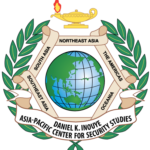By: Shazia Haris
In a crisis, no one person is Aristotle, and it’s OK to build a team and learn. That is how we convert adversity into opportunity.
It was a warm day of July 2015 in Hawaii, when we Fellows of the Crisis Management Course at the Daniel K. Inouye Asia-Pacific Center for Security Studies (DKI APCSS) role-played, handling a health epidemic with potential to be pandemic in South Asia. To our utter surprise we as crisis managers had to communicate with Border Control Forces, the Health Minister, National Security Officers, the Police, the Fire Department, the Finance Ministry, the Military officials of the affected country and its neighbors, and above all the Prime Minister along with his bureaucracy, and the border security of neighborly countries. “What the heck had we to do with all these stiff collar people,” we thought. We were the national crisis management team to deal with crisis-specific issues only, but now with COVID-19 termed a pandemic by the WHO, it all seems so true!
The role-play crisis game opened avenues unknown to us, making us realize how close-knitted disaster management is to human and international security. We realized that making consented decisions an all-inclusive approach taking all stakeholders on board, is the answer to hindrances, both human and situational in crises. At the policymaking level, understanding the importance of information dissemination and risk communication as a safety weapon, like a missile in war, is absolutely vital.
The first coronavirus case was reported on February 26 in Karachi. The evidence suggests that the source was imported, not indigenous, and now we have reports of cases being transmitted within communities. This is alarming as it affects economic viability and inability to earn a living might be a precipitating factor for political unrest starting from the lowest income earning population. Today, with infected cases over 2,400, Pakistan needs to realize that the earthquake in 2005 was an eye-opener for the world as a whole, but as it was restricted to Pakistan, the world rushed for help. COVID -19 has affected the whole world, made health systems collapse and left corpses to pick so the international help scenario might not be the same as in 2005. A recent analysis by Foreign Policy argues that COVID -19 might be a precipitating factor for political unrest in economically weak states as the world is facing its own economic crisis. The report warns that with main aid providers busy in their own countries, there is a serious risk that economically weak states may face debt, deaths, mass unemployment and political unrest due to economic collapse leading to toppling governments around the world.
With the Army now actively participating, we are hopeful to get real data, which is necessary for further planning. Keeping in view the unknown nature of this virus and its ability to adapt and change, we cannot purely depend on kneejerk reactions but must understand that this virus is amongst us and here to stay for a while. With rapid growth capability, remaining dormant in many, thus infecting others without the host knowing he or she is a carrier and likely relapse of cured population after months, it poses a unique challenge to think innovatively keeping in view the cultural, social and economic fabric of our society. Are we ready for the future?
Comparing our reaction versus the world’s, we saw while the Australian government took a fairly aggressive approach, making the National Response Strategy keeping the worst-case scenario in mind, saying it was better to be prepared that to avoid fear as we are attacked by an entity we do not know much about. We, on the other hand focused on not scaring the masses, thus no proactive awareness campaigns were seen initially. The world made nearly 100 academic journals’, societies’, institutes’, and companies’ data on COVID-19 available free of cost available, for the outbreak’s duration. I wonder how many of us took advantage of this research covering social, economic, psychological and political impacts of the pandemic and sharing input with policy makers to make consented and long-term decisions? Unfortunately, we are still stuck in fight-alone mode.
Another example, as the virus could affect employees, NASA charted out a four-stage response plan for civil servants. Using a predictive model for disease, each stage caters for severity and frequency of spread and discusses a four-point agenda from access to center, health and safety of employees, meetings and events and travel of employees so that even if the situation gets really bad, work does not suffer. The good thing is the plan refers to Centers for Disease Control and Prevention, which has updated travel details warnings and awareness, meaning all relevant departments are well-synchronized. Can we learn and implement by replicating an already good plan making changes suited to our cultural and social needs? Have we spelled out a COVID-19 strategy for government and private office employees, knowing that most of the lower staff comes to work by bus?
Other examples are of John Hopkins University giving public access to its live database worldwide, the Royal College of Obstetricians recommending social distancing for pregnant women, while chemical and biological journals are tracking the virus plasma to hinder its growth. All this has gone open-source, so a world of knowledge is right there to take, learn and prevent the disease, but you need a team for that. Do we have a database and names of experts of disaster managers in the country? Where are the trained teams who handled the earthquake in 2005? Do we know past strategies and policies, tried and tested for previous disasters stacked somewhere in stores? Or are we re-inventing the wheel? If so will COVID-19 wait?
A tried and tested cluster approach must be taken with short, medium and long-term goals. Clusters could include, Health, Livelihood, Security, Water and Power, Sanitation, Risk Communication Awareness and Community Engagement, Gender and Vulnerable Groups (including women and children stranded in jails), Economic Revival and Stability, Agriculture and Research and Knowledge Management (not medical, but from a human behavior and change perspective). On war footing, each cluster should prepare action plans with short-, medium- and long-term measures while a research group has to back them up with latest research and the media should be made partner in Crisis Management.
In a crisis no one person is Aristotle and it’s OK to build a team and learn, that’s how we converted the adversity into opportunity in past and only group approach involving all stake holders is the answer, you don’t need to hire people to trace experts already working in government. We need to get going, the sooner we realize this, the better it will be for Pakistan.
Previously published here: https://www.pakistantoday.com.pk/2020/04/03/call-panic-world-calls-preparedness/
Published: April 3, 2020
Category: Crisis Updates from the Region
Volume:
Author:






Thanks Shazia – great update article. I’m so happy you brought up the CCM exercise we did and reflected on its relevance to the current situation. Absolutely agree that everyone turned inwards as they struggled to manage their own national crisis and the fallout associated with it. As the crisis progresses, have you observed any move outward in perspective or is it remaining inward?